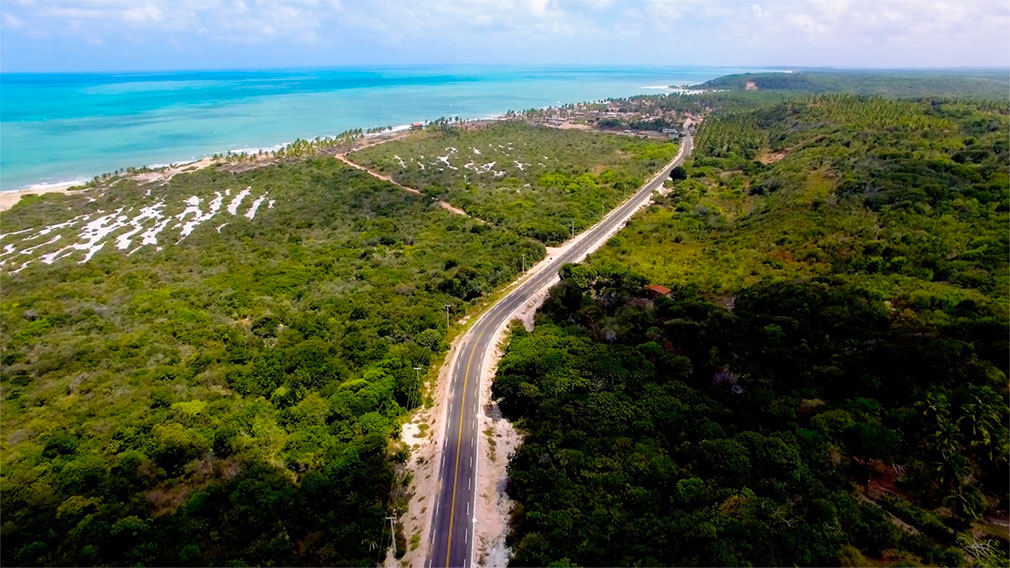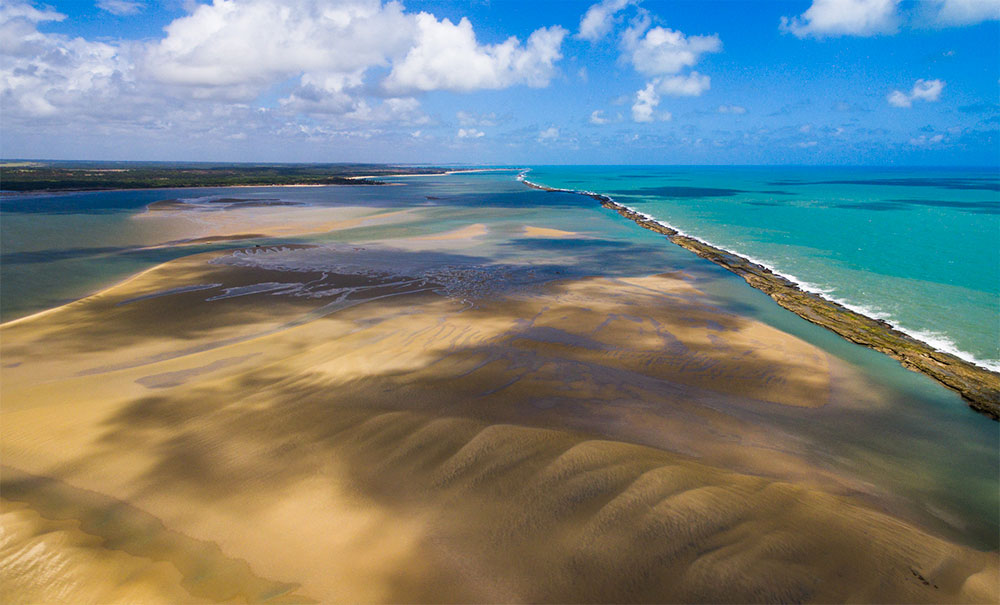About the project
When the Government of Paraíba decided to pave and restore certain roads and accesses to the state’s northern coast, the idea proposed went far beyond just improving vehicle traffic conditions.

A complex and ambitious project, “Nas Trilhas dos Potiguaras” (On the trails of the Potiguaras) found inspiration in the emblematic past of the Indians who live here to set a higher goal, in which the meaning of road is amplified and understood as a way to know, and, above all, to preserve this unknown, beautiful, and historical region.
Once inside this new itinerary of experiences, placed right among its backbone, the BR- 101 highway, and its links with Forte Velho (PB-011), Lucena (PB-027), Baía da Traição (PB-041), and Barra de Camaratuba (PB-061), get ready. The sensations will be, with no exaggeration, surprising.
Reasons abound. Half of the sixty-six kilometers of beach of Paraíba's northern coast are inside Environmental Protection Areas, distributed in a mosaic of Conservation Units, where threatened species can find a refuge.
The coast is also home to the oldest Indian Reservation in Brazil, whose nation, the Potiguaras, inhabits the same place where they led some of the main chapters of the beginning of the Brazilian colonization.

The scenario, in turn, is still as spectacular as in the 16th century, when intense battles, involving natives, Portuguese colonizers, and French and Dutch invaders, took place among cliffs, desert beaches, exuberant estuaries, and crystal water lagoons.
In the 21st century, the roads of the “Nas Trilhas dos Potiguaras” circuit will take off and open its wings as a gateway to different places and explorers’ profiles.
If you like nature, history, adventure sports, or just tasting typical dishes and participating in popular parties, this is the place for you.
The concepts may vary among ecotourism, communitarian tourism, or historical interest. In common, there emerges the aim to encourage and develop a kind of tourism based on sustainability and social inclusion, committed with the preservation of the Environmental Conservation Units, as well as with the dissemination and rescue of the Potiguara Indians' culture in the beautiful and surprising northern coast of Paraíba.